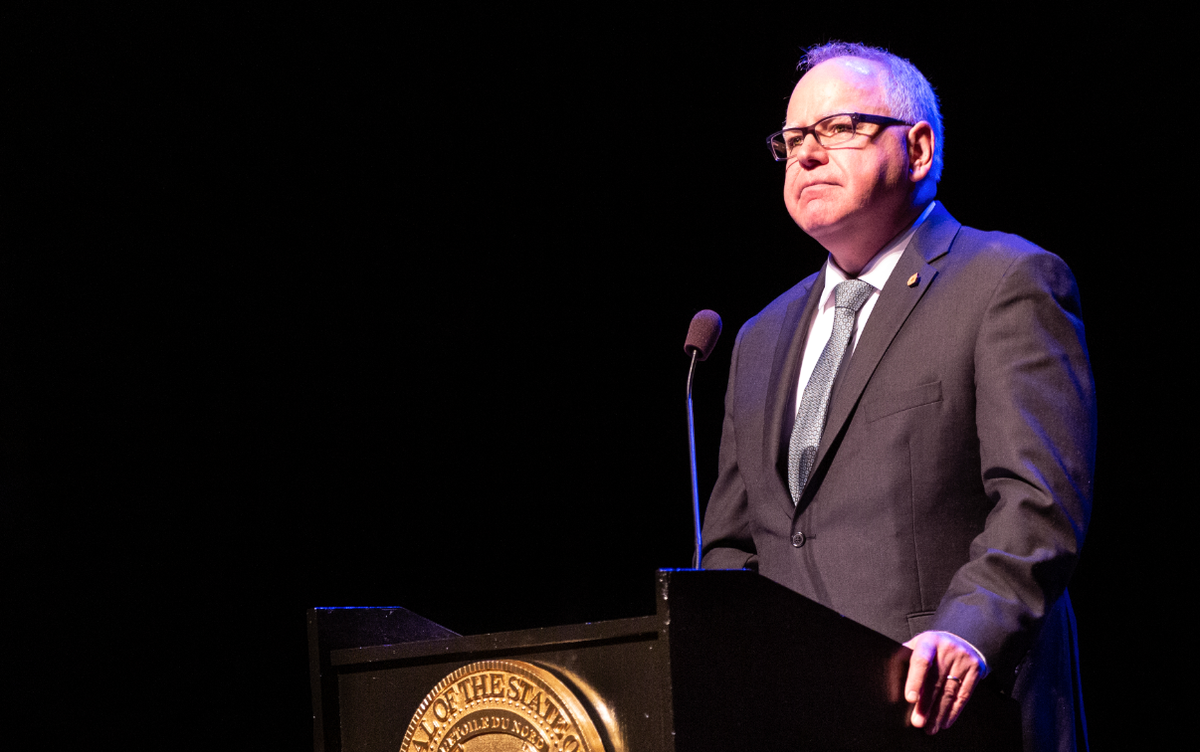Campaign Tries to Do Damage Control After Tim Walz Calls for Radical Election Reform

Vice President Kamala Harris' campaign worked to distance itself from comments made by her running mate, Minnesota Governor Tim Walz, regarding a significant shift in election processes. Walz suggested doing away with the Electoral College in favor of a direct popular vote for president during a campaign event in California.
According to Politico, Walz said at the event alongside California Governor Gavin Newsom, "I think all of us know the Electoral College needs to go." He further elaborated, "We need a national popular vote, but that’s not the world we live in."
Walz acknowledged that, given the current Electoral College system, he and Harris are targeting key swing states like Pennsylvania, Wisconsin, and Nevada as part of their effort to win the presidency next month.
The Electoral College was designed by the Founders and written into the Constitution to ensure that smaller states still had influence in deciding the presidency. The system assigns each state a number of votes based on its congressional representation—its number of House members, which reflects the population, plus two votes for its Senate seats. For example, California, the most populous state, has 54 votes, while states like Alaska, Delaware, and North Dakota only have three.
Typically, the winner of the popular vote also wins the Electoral College, but there have been five instances in U.S. history where that wasn't the case. The most recent were in 2000 and 2016, when Democrats Al Gore and Hillary Clinton, respectively, won the popular vote but lost in the Electoral College.
In the 2016 election, Donald Trump secured 304 Electoral College votes to Clinton's 227, despite Clinton winning the popular vote with around 65.9 million votes compared to Trump's 63 million. Clinton was able to secure large margins in Democratic strongholds like California and New York, with the former contributing 3.4 million votes to her total, far exceeding her overall margin of victory in the popular vote.
Following Walz’s remarks, Trump campaign press secretary Karoline Leavitt responded on X, questioning whether Walz was "laying the groundwork to claim President Trump’s victory is illegitimate."
Is Tampon Tim laying the groundwork to claim President Trump’s victory is illegitimate? https://t.co/E8konqFN82
— Karoline Leavitt (@kleavittnh) October 8, 2024
In 2023, Walz signed legislation in Minnesota that would require the state’s Electoral College votes to go to the winner of the national popular vote, regardless of how Minnesotans voted. This was part of the National Popular Vote initiative, which aims to bypass the constitutional amendment process. Sixteen other states have passed similar measures, according to the National Popular Vote website. However, this strategy could face legal challenges if enough states adopt it to reach the 270 electoral votes necessary to win the presidency.
Politico also reported that the Harris campaign quickly released a statement following Walz's comments, emphasizing, "Gov. Walz believes that every vote matters in the Electoral College, and he is honored to be traveling the country and battleground states working to earn support for the Harris-Walz ticket."
The statement further clarified, "He was commenting to a crowd of strong supporters about how the campaign is built to win 270 electoral votes, and he was thanking them for their support that is helping fund those efforts."
This is not the first time Harris has expressed openness to reconsidering the Electoral College. During a 2019 appearance on Jimmy Kimmel Live, while still serving as a U.S. senator from California, she said she was "open to the discussion" of ending the Electoral College, following Senator Elizabeth Warren’s call for the same. Harris noted, “There’s no question that the popular vote has been diminished in terms of making the final decision about who’s the president of the United States, and we need to deal with that."
Last month, at a fundraiser in the New York home of investor Alex Soros, son of George Soros, Walz said, "I am hopeful on this country, but I’m also a pragmatist and a realist." According to Politico, he added, "That’s the Electoral College system, the way it’s set up, and the states that we’re vying for are incredibly close."